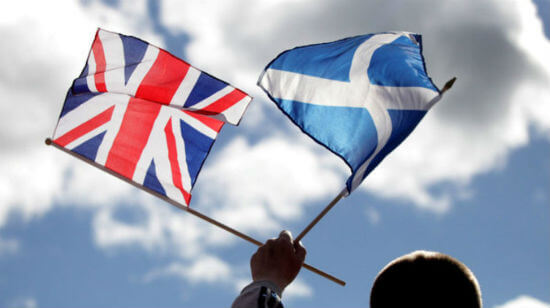The ballots have been counted, the results are in, and, as we all know, the Scots will remain British citizens for the foreseeable future.
In the aftermath of the Scottish independence referendum, two things are apparent. Although the Yes camp did not succeed in their bid to become independent, Scotland will receive more devolved power from Westminster, moving the country further in the direction of autonomy, if not outright independence.
So as it stands, it seems like both the Yes and the “Better Together” (a.k.a. No) groups came out partial losers.
Not so for one anonymous trader from the City of London, the original bettor who wagered £400,000 on a No vote. This punter, who describes himself as “a bit of a data geek and information nerd,” has managed to maintain strict anonymity. His achievement, though, is still quite impressive.
After originally placing a bet of £400,000 on a No vote, he increased the amount by £200,000. However, just when you thought that £600,000 was already a bit steep, he added an extra £300,000 to his bet, meaning that it totaled a record £900,000 on one event.
His bet is the largest ever on a political event in British history, and is also believed to be one of the largest in the world.
As it stands, “Peter,” as the media have dubbed him, managed to walk away with £193,333 from his landmark wager, in an event that bookmakers have already described as being a record for the sheer number of bets placed during the referendum campaign.
When asked why he bet so much money on the vote, he replied that he was a committed unionist and his decision was motivated in part to give the No campaign good publicity.
Betfair, a major British online bookmaker and casino, also believed that the result was never in any doubt, having already paid out on No votes several days before the actual poll. It would appear that this is simply a case of pushing the side that you support.
It was still a close call, though: 84.6% of registered voters turned out to vote, in a country where voting is not mandatory and only 33.5% of voters cast their ballots in the 2014 European Parliamentary elections; and of the votes cast in the referendum, 55.3% voted No, with 44.7% voting Yes. The impressively close result shows just how emotive the issue is, and perhaps how unpopular the government in Westminster is.
Whether the referendum results in substantive changes or not, the anonymous bettor who made a pretty penny must be feeling rather chuffed with himself. And the Scottish people have also spoken, loudly and clearly. London would do well to heed them.





























